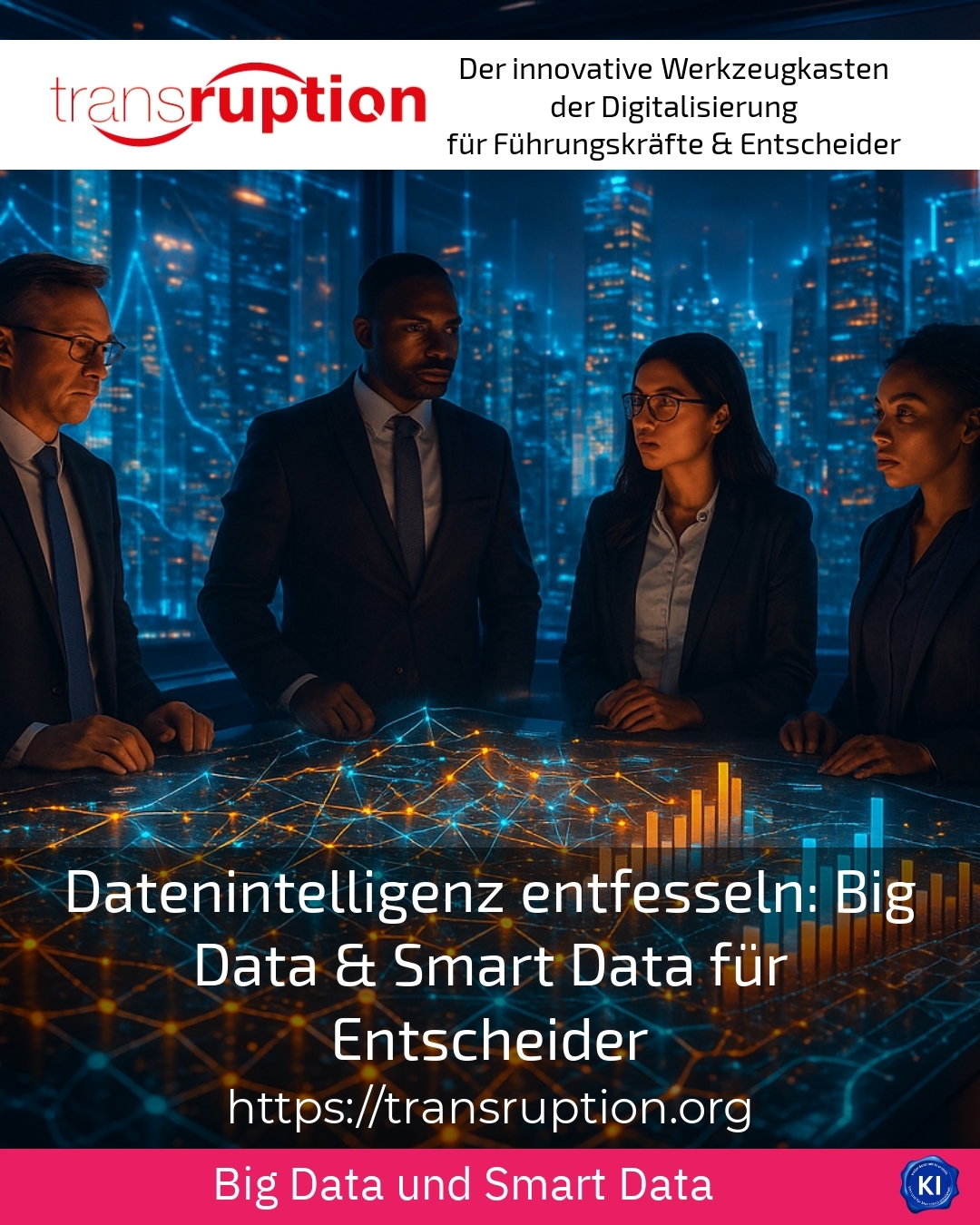In today's corporate world, the term Data intelligence has become a key success factor. The enormous volume of raw data, also known as big data, only offers real benefits if it can be converted into precise, relevant information - so-called smart data. Data intelligence supports decision-makers in gaining valuable impulses from this multitude in order to be able to act dynamically and informed.
The development of data intelligence: from big data to smart data
Big data comprises large, diverse and often unstructured volumes of data from a wide variety of sources: for example, sales data in retail, sensor data in industry or usage data from digital platforms. The sheer volume of data makes it confusing at first. It is therefore essential to filter and refine it in such a way that only those data sets that are actually relevant to decision-making are retained. This is precisely where the effect of Data intelligence.
An example from production: a company uses sensor data from its machines to recognise signs of wear and tear at an early stage and plan maintenance with foresight. This intelligent analysis reduces downtime and saves costs. In the financial sector, algorithms for analysing data from millions of account transactions detect fraud attempts more quickly because only relevant anomalies are highlighted.
Customer service succeeds thanks to Data intelligence, The aim is to refine data on customer preferences and behaviour in such a way that personalised recommendations and offers are created. This often increases customer satisfaction and binds customers to the company in the long term.
Why smart data is crucial for informed decisions
In contrast to big data, smart data is not about quantity, but about quality. Data intelligence focuses on structuring and analysing data and preparing it for specific issues. This results in usable, precise information that helps companies to work more efficiently.
For example, a telecommunications provider can use smart data to analyse network utilisation and customer behaviour in real time. This results in specific recommendations for action, such as capacity planning or optimising tariff offers. Smart data also supports the optimisation of supply chains in logistics by helping to control stocks precisely and plan routes efficiently.
BEST PRACTICE at the customer (name hidden due to NDA contract) In a medium-sized mechanical engineering company, the introduction of data-intelligent analysis tools significantly improved production quality. Sources of error were identified at an early stage and processes optimised. The result was a noticeable increase in customer satisfaction and a reduction in rejects.
Technological tools for data intelligence
Modern technologies such as artificial intelligence (AI), machine learning and advanced analysis methods are used to transform big data into smart data. These automate the process of recognising patterns, filter out relevant information and enable the data to be interpreted quickly. In marketing in particular, such technologies offer the opportunity to manage campaigns in a targeted manner and actively improve the customer journey.
In the healthcare sector, AI-supported data analyses support diagnosis by evaluating large volumes of patient-related data and thus promoting personalised therapies. This intelligent use of data is an example of how Data intelligence also takes social and ethical factors into account and can accompany them.
Data intelligence as a companion for complex projects
The introduction of data-intelligent processes and technologies requires strategic support. Many companies face challenges such as data silos, insufficient data quality or a lack of expertise. This is where transruptions coaching comes in, providing support and impetus for the practical implementation of data-intelligent approaches. Data intelligence is therefore not just a question of technology, but an integral part of the company's development.
BEST PRACTICE at the customer (name hidden due to NDA contract) Coaching helped an international service company to restructure its data management and utilisation. The development of a data-supported decision-making basis significantly improved project planning and resource utilisation.
In retail, many decision-makers see the greatest challenge in generating personalised offers from the large amount of customer data. Supported by external expertise, they have successfully introduced the first data-intelligent systems that go beyond pure data analysis to create strategic competitive advantages.
My analysis
To summarise, it can be said that Data intelligence is essential for modern decision-making. The transformation of big data into smart data enables companies to work more efficiently, in a more targeted manner and with fewer resources. The combination of innovative technologies and proven support creates sustainable competitive advantages. Decision-makers should therefore actively tap into the potential of data-intelligent applications and at the same time strategically support the transformation.
Further links from the text above:
[1] From big data to smart data with data intelligence: How to ...
[2] Big data vs. smart data: is more always better?
[3] Smart data: How intelligent data is shaping our future
[4] Big data: the utilisation of large amounts of data
[5] Smart Data: Definition, application and difference to Big ...
[6] What is smart data?
[7] Smart data, or the intelligent use of data - Appvizer
[8] Smart + Big Data | Artificial Intelligence
[9] Unleashing data intelligence: Big Data & Smart Data for ...
For more information and if you have any questions, please contact Contact us or read more blog posts on the topic TRANSRUPTION here.















